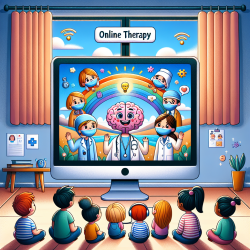Introduction
In the dynamic field of speech-language pathology, understanding the genetic underpinnings of communication disorders can significantly enhance therapeutic outcomes. A recent study titled "Feedback of individual genetic and genomics research results: A qualitative study involving grassroots communities in Uganda" sheds light on the importance of ethical feedback mechanisms in genetic research. This blog explores how practitioners can harness these insights to improve their skills and foster better outcomes for children.
Understanding the Research
The study conducted in Uganda explored grassroots communities' perceptions of receiving individual genetic and genomics research results. Participants expressed a strong desire for feedback, motivated by the potential health benefits, diagnostic clarity, and future health planning. The research identified key themes such as the need to know one's health status, the implications of paternity information, and the ethical considerations surrounding feedback.
Implications for Practitioners
As practitioners, integrating these findings into our practice can enhance our approach to therapy and counseling. Here are some key takeaways:
- Emphasize Informed Consent: Ensure that families understand the implications of genetic testing and the potential outcomes. This aligns with the study's emphasis on adequate informed consent and genetic counseling.
- Facilitate Genetic Counseling: Advocate for access to genetic counseling services to help families interpret genetic information and make informed decisions about their child's care.
- Address Misconceptions: Educate families about the limitations of genetic testing, particularly the misconception that it always leads to therapeutic or diagnostic solutions.
- Promote Privacy and Confidentiality: Respect the privacy of genetic information and ensure that feedback is conducted in a confidential and supportive environment.
Encouraging Further Research
The study highlights the need for ongoing research in the context of genetic feedback, particularly in diverse cultural settings. Practitioners are encouraged to engage in or support research that explores the ethical, social, and psychological implications of genetic testing in speech-language pathology.
Conclusion
By integrating the insights from this study into our practice, we can better support families in navigating the complexities of genetic information. This not only enhances therapeutic outcomes but also empowers families to make informed decisions about their child's development. For practitioners interested in delving deeper into the research, I highly recommend reading the original study.
To read the original research paper, please follow this link: Feedback of individual genetic and genomics research results: A qualitative study involving grassroots communities in Uganda.










